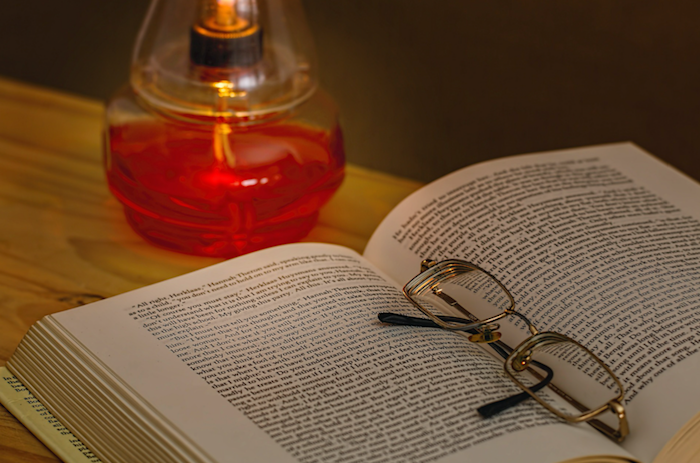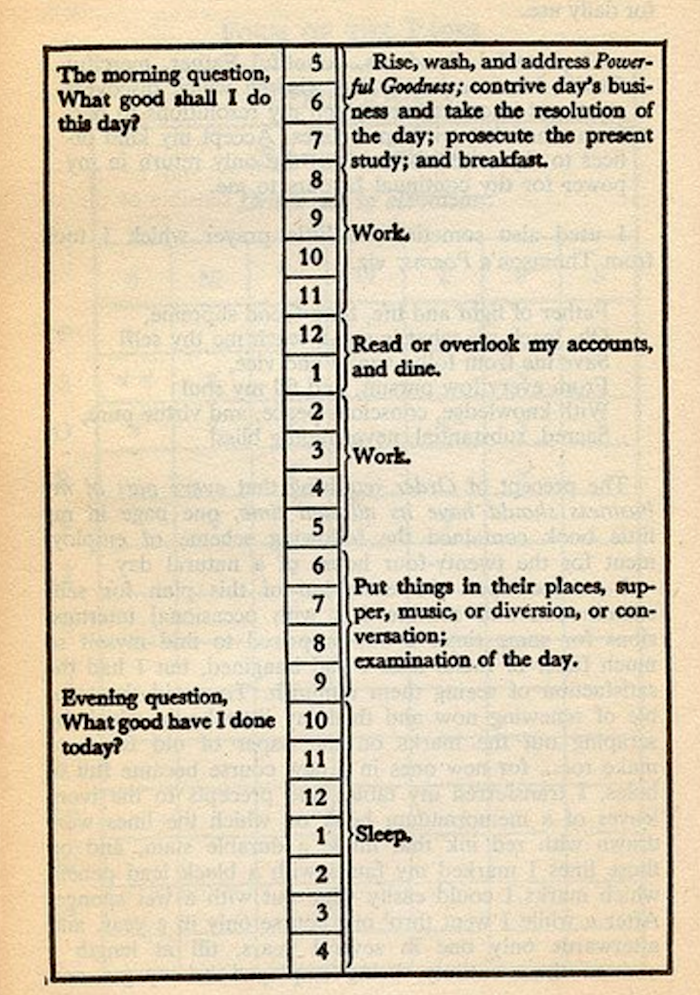

The close of each day is just as important as the start. By implementing evening routines, you ready yourself for the next morning, recharge with a restful night, and minimize the resistance you encounter in getting things done.
Prepare goals for the next day
Determining your objectives for the coming day does two things. First, it allows you to identify your most important tasks in advance—before all the pressures of the day arrive on your doorstep. Ideally, the first few hours of each day should be spent conquering your most challenging task. This idea has been given various names, such as “eating the frog” and “slaying the dragon.”
Second, it allows your brain to begin thinking about those tasks as you fall asleep. In their book Organize Tomorrow Today: 8 Ways to Retrain Your Mind to Optimize Performance at Work and in Life, authors Jason Selk, Tom Bartow, and Rudy Matthew say:
Identifying daily priorities might seem like an obvious or insignificant step to take, but writing your most important tasks down the previous night turns your subconscious mind loose while you sleep and frees you from worrying about being unprepared. You’ll probably find that you wake up with great ideas related to the tasks or conversations that you hadn’t even considered!
Reflect on the day’s achievements
It can be easy to lose sight of victories after a long day. Taking just a few moments at the end of the day to reflect on and celebrate your wins puts things into the proper perspective and gives you encouragement for the coming day. It helps you overcome the discouragement that often comes with setbacks.
In addition to asking at the start of his day “What good shall I do this day?”, Benjamin Franklin asked every evening “What good have I done today?”.
Zen Habits author Leo Babauta puts it this way:
If you reflect on the things you did right, on your successes, that allows you to celebrate every little success. It allows you to realize how much you’ve done right, the good things you’ve done in your life.
You can do this in a variety of ways, including jotting things down in a blank Moleskine notebook, a gratitude journal, or an app on your phone. You can automatically track your productivity with RescueTime and Zapier as well:Get daily RescueTime summary reports via GmailUse this ZapTurn new time entries in Toggl into daily highlights in RescueTimeUse this ZapAdd new rows to Google Sheets with daily RescueTime summary reportsUse this ZapSee more RescueTime integrations powered by
Clear your head
It’s easy to take your work to bed, making it difficult to fall asleep as you mull over job-related problems. Clearing your head before sleep allows you to put aside the challenges of the day and ready your mind to shut down. There are numerous ways to do this, including:
- Meditation
- Light reading
- Playing Tetris (for productivity!)
- Watching a peaceful television show (The Walking Dead probably isn’t your best bet)
- Doing a “brain dump” of all the thoughts in your head in a journal before you go to bed
Buffer CEO Joel Gascoigne describes his disengagement this way:
For me, this is going for a 20-minute walk every evening at 9:30 p.m. This is a wind-down period, and allows me to evaluate the day’s work, think about the greater challenges, gradually stop thinking about work and reach a state of tiredness.
Your goal is to engage your mind in something completely non-work related.
Prepare for the next morning
In order to minimize the amount of thinking you need to do in the morning, take time to prepare things. Pick out the clothes you’ll wear, prepare the food you’ll eat, prep the coffeemaker, and organize any work related materials you need to bring. If you’ll be going to the gym, lay out your workout clothes and water.
The less time and mental energy you expend on inconsequential things, the more you’ll have for the things that matter.
Tidy up
Waking up to a messy home isn’t the most motivating way to start your day. Without regular sessions cleaning up and putting things away, you’ll find your place quickly in disarray.
Thankfully, spending just 10 to 20 minutes a night tidying up will help reduce stress in the mornings and help you avoid marathon cleaning sessions on the weekends. If there’s only one thing you do,clean and shine your sink. Like making your bed in the morning, this one task will give you a sense of accomplishment. Housekeeping guru FlyLady says:
This is your first household chore. Many of you can’t understand why I want you to empty your sink of your dirty dishes and clean and shine it when there is so much more to do. It is so simple; I want you to have a sense of accomplishment! […] When you get up the next morning, your sink will greet you, and a smile will come across your lovely face. I can’t be there to give you a big hug, but I know how good it feels to see yourself in your kitchen sink. […]
Go shine your sink!
Also, if you have children, you know the importance of setting up solid routines with them. They can help out too!
Practice proper sleep hygiene
Very few people practice proper sleep hygiene and their sleep suffers as a result. Generally speaking, you should:
- Stick to the same sleep and wake schedule.
- Minimize blue light from screens (this can be done using F.lux on your computer and “Night Mode” on your mobile device).
- Set the temperature in your room to between 60-65°F (15-18°C).
- Make your room as dark as possible.
It can be easy to minimize the importance of sleep, but it’s absolutely essential for optimum performance. In fact, sleep is so crucial that Arianna Huffington devoted an entire Ted Talk to it.
It can be really tough to build routines into your life. It takes intention and discipline. Sometimes it feels simpler to just get the day started and then after a long workday crash into bed.
But the good thing about routines and habits is that the more you do them, the easier they become. They become ingrained in your day to the point where you find it harder to not do them.
So stick with it. You may find it tedious at first, but you’ll find your days will flow much more smoothly when you’ve bookended them with quality morning and evening routines.
To create your morning and evening routines, you can write up a checklist that you can walk through every day until it becomes ingrained in you or set up a schedule, a la Ben Franklin. For example:
- 6 am: wake, make the bed, get coffee started
- 6:15: drink coffee and read the news
- 6:30: exercise
- 7: eat breakfast
- 7:15: shower
- 8-5: work
- 6: dinner
- 7:30: tidy up
- 8: time with family, TV, or other form of relaxation and entertainment
- 9:30: journaling or meditation
- 10: bedtime
What’s your daily routine like?


